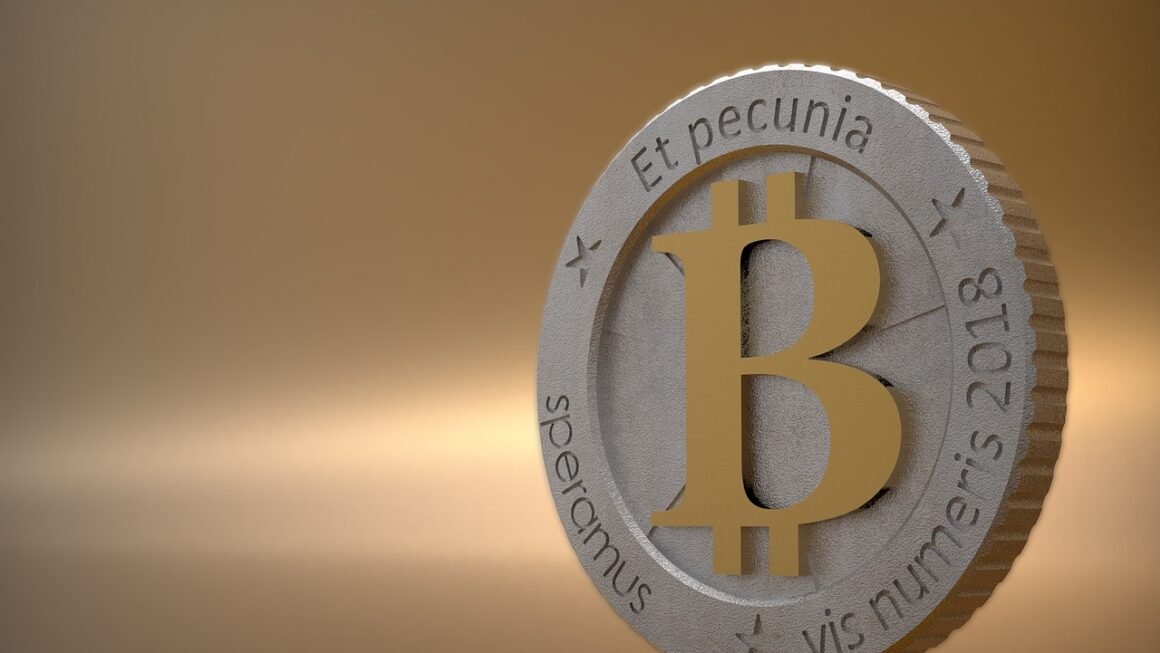Navigating the world of cryptocurrency can feel like traversing a digital labyrinth. While the technology offers exciting opportunities for financial independence and innovation, the topic of privacy often takes center stage. Privacy coins, designed to obscure transaction details and user identities, offer a potential solution for those seeking greater control over their financial information. But what exactly are they, how do they work, and what are the implications of using them? Let’s dive in.
Understanding Privacy Coins
What Are Privacy Coins?
Privacy coins are cryptocurrencies that enhance the anonymity of transactions by obscuring the sender, receiver, and/or the amount being transferred. Unlike Bitcoin, where transaction history is publicly available on the blockchain (albeit linked to pseudonymous addresses), privacy coins employ various cryptographic techniques to make these details much harder, or even impossible, to trace. The core goal is to provide a level of financial privacy comparable to cash transactions.
Why Privacy Matters in Cryptocurrency
- Financial Security: Revealing your transaction history can expose your financial holdings and make you a target for hackers or malicious actors.
- Business Privacy: Companies might not want their competitors to know their transaction volumes or supplier relationships.
- Personal Preference: Some individuals simply value their privacy and prefer to keep their financial activities confidential.
- Censorship Resistance: In environments with strict financial regulations or censorship, privacy coins can offer a way to transact without government oversight.
Different Approaches to Privacy
Privacy coins use several different cryptographic techniques to achieve anonymity. Understanding these approaches is key to differentiating them. Here are some of the most common:
- Ring Signatures: Used by Monero (XMR), ring signatures allow a user to sign a transaction on behalf of a group of users (the “ring”). This makes it impossible to determine which member of the ring actually signed the transaction.
- Stealth Addresses: Also used by Monero, stealth addresses create unique, one-time addresses for each transaction, preventing others from linking transactions to a specific wallet address.
- zk-SNARKs (Zero-Knowledge Succinct Non-Interactive Argument of Knowledge): Employed by Zcash (ZEC), zk-SNARKs allow one party to prove to another that they possess certain information without revealing the information itself. This is used to verify transactions without disclosing the sender, receiver, or amount.
- MimbleWimble: Used by Grin (GRIN) and Beam (BEAM), MimbleWimble removes transaction history from the blockchain, making it significantly smaller and more private.
Popular Privacy Coins: Features and Functionality
Monero (XMR)
- Focus: Strong, default privacy.
- Technology: Ring signatures, stealth addresses, Ring Confidential Transactions (RingCT).
- Privacy Level: High. By default, all transactions are private.
- Example: Alice wants to send 10 XMR to Bob. Monero’s ring signature technology would mix Alice’s signature with those of other users, making it difficult to determine which user actually sent the transaction. Stealth addresses ensure that Bob’s address is never directly exposed on the blockchain.
Zcash (ZEC)
- Focus: Selective privacy.
- Technology: zk-SNARKs.
- Privacy Level: Optional. Users can choose between “shielded” (private) and “transparent” (public) transactions.
- Example: Carol can send 5 ZEC to David using a shielded transaction, which would obscure both the sender and receiver addresses, as well as the amount sent. This provides a higher level of privacy compared to a transparent transaction.
Grin (GRIN)
- Focus: Privacy by design, scalability.
- Technology: MimbleWimble.
- Privacy Level: High.
- Example: Grin’s MimbleWimble protocol eliminates the need to store historical transaction data, making the blockchain smaller and more private.
Beam (BEAM)
- Focus: Confidential DeFi applications.
- Technology: MimbleWimble.
- Privacy Level: High.
- Example: Beam aims to provide a platform for building confidential decentralized finance (DeFi) applications, where users can participate in lending, borrowing, and trading without revealing their financial information.
The Pros and Cons of Privacy Coins
Advantages
- Enhanced Privacy: The primary benefit, offering users greater control over their financial data.
- Financial Security: Reducing the risk of being targeted by hackers or scammers.
- Censorship Resistance: Providing a means to transact in environments with strict financial controls.
- Increased Fungibility: Making all units of a cryptocurrency interchangeable, as transaction history cannot be easily tracked.
Disadvantages
- Regulatory Scrutiny: Privacy coins face increased scrutiny from regulators concerned about their potential use in illicit activities.
- Delisting from Exchanges: Some cryptocurrency exchanges have delisted privacy coins to comply with regulatory requirements.
- Complexity: Understanding and using privacy coins can be more complex than using traditional cryptocurrencies.
- Potential for Misuse: While privacy is a fundamental right, privacy coins can be used for illicit purposes, such as money laundering or funding illegal activities.
Navigating Regulatory and Legal Considerations
Global Regulations
Regulations surrounding privacy coins vary significantly across different jurisdictions. Some countries have banned privacy coins outright, while others have imposed strict regulations on exchanges that list them.
- Example: In Japan, privacy coins like Monero and Zcash are not permitted to be listed on exchanges.
- Actionable Takeaway: Before using privacy coins, research the regulations in your jurisdiction to ensure compliance.
KYC/AML Compliance
Know Your Customer (KYC) and Anti-Money Laundering (AML) regulations are designed to prevent financial crime. Privacy coins present a challenge to these regulations, as they make it difficult to identify the parties involved in a transaction.
- Example: Cryptocurrency exchanges that handle privacy coins may need to implement enhanced due diligence procedures to comply with KYC/AML requirements.
- Actionable Takeaway: Be aware of the KYC/AML policies of any exchange or service you use to interact with privacy coins.
Balancing Privacy and Responsibility
The use of privacy coins raises ethical considerations. While privacy is a fundamental right, it’s important to use these technologies responsibly and avoid engaging in illegal activities.
- Example: Using privacy coins to evade taxes or fund terrorism is unethical and illegal.
- Actionable Takeaway: Consider the ethical implications of using privacy coins and ensure that your activities are legal and responsible.
The Future of Privacy Coins
Technological Advancements
Ongoing research and development efforts are focused on improving the privacy, scalability, and usability of privacy coins. New cryptographic techniques and protocols are constantly being explored.
- Example: Research into more efficient zero-knowledge proof systems could lead to faster and more scalable privacy coins.
- Actionable Takeaway: Stay informed about the latest technological advancements in the field of privacy coins.
Adoption and Integration
As awareness of privacy issues grows, we may see increased adoption of privacy coins for various use cases, including online shopping, remittances, and decentralized finance.
- Example: Some online retailers may begin accepting privacy coins as a payment option to attract privacy-conscious customers.
- Actionable Takeaway: Consider how privacy coins could be integrated into your own financial activities or business operations.
Regulatory Landscape
The regulatory landscape surrounding privacy coins is likely to evolve as governments and regulatory bodies gain a better understanding of the technology and its implications.
- Example: Future regulations may focus on striking a balance between promoting innovation and preventing illicit activities.
- Actionable Takeaway: Monitor regulatory developments and adapt your strategies accordingly.
Conclusion
Privacy coins represent a significant step towards greater financial autonomy and control over personal data in the digital age. While they offer compelling benefits, it’s crucial to understand their functionalities, limitations, and regulatory implications. By staying informed and using these technologies responsibly, individuals can leverage the power of privacy coins to navigate the evolving world of cryptocurrency with confidence.



